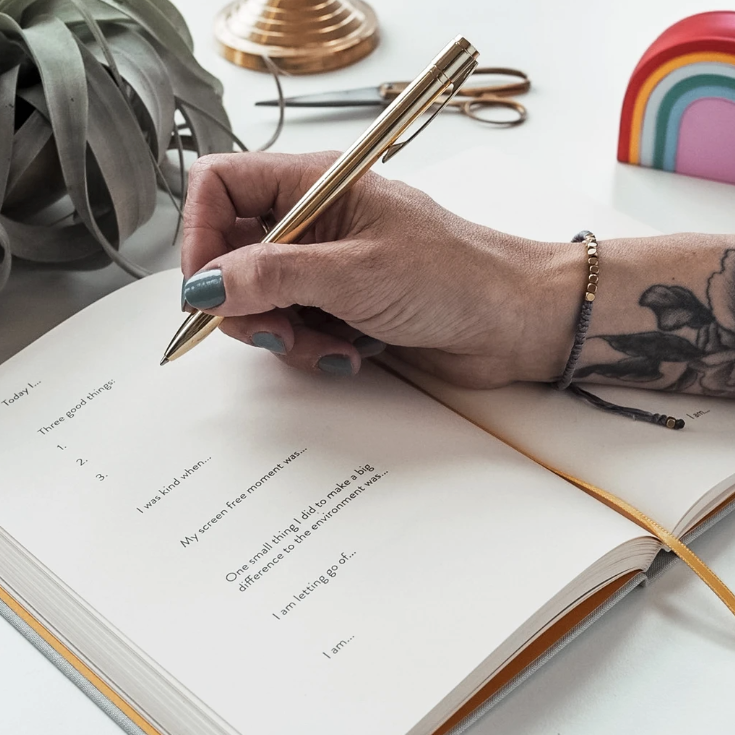A GUIDE TO JOURNALING – WHAT IT IS & HOW TO START
Journaling is the simple act of getting your thoughts and feelings down on paper. It’s a process that can bring you greater clarity, direction and confidence to carry on with the day, and it can give you a sense that you’ve dealt with something (at least mentally), even if you haven’t physically acted on it. It can be an incredibly powerful tool to re-frame and re-organise your thoughts.

Journaling has been increasingly recognised in recent decades as an activity to boost mental health. Dozens of studies have shown that keeping some kind of journal – and there are many types – can have a positive effect on anxiety and stress levels, your ability to achieve goals and even physical health.
You can use a journal for many things – to record what you’ve done that day, to vent thoughts and feelings that are over-powering everything else, or to note something that makes you feel happy or inspires you. Or all of the above. The act of journaling is simply setting aside a little moment of quiet in your day to stop and note how things are going.
If you’re new to journaling or you haven’t yet embarked on it, you might be considering whether you have time in your busy day to actually do it. The important first step is finding a habit and journaling style that works for you. Journaling doesn’t have to mean sitting down to write pages and pages each day. If you’re daunted by the blank page, a journal that features prompts and questions is ideal. You also don’t need to write full sentences – try bullet points or a select few words to neatly capture your thoughts and emotions. Our Unwind Your Mind journal features simple prompts that gently guide and provide you with a framework.

If writing isn’t for you, try a more visual approach. Sketching is a great way of getting what’s inside your head down on paper, giving you space to think. Dream journaling helps you keep track of your dreams and thoughts in the night, as well as your mood when you wake. And gratitude journals like our Record of Good Things are great for boosting your mood.
Find a time of the day that suits you. Mornings are ideal and if you’re in the camp that scrolls through social media first thing every day, try swapping your phone for your journal instead. Chances are, you’ll soon see a positive difference in your morning mood. Alternatively, set an alarm for a time of day that suits you and start off with just a few minutes each day. Time it with a tea break or a stretch break and you’ll soon be weaving it into your day without any extra effort.
The most important rule of journaling is that it shouldn’t feel like a chore. It should be fun. You should look forward to it. If it starts becoming a mental thorn, then take a break. Or if one way of journaling isn’t working for you, try another. Pair the act of journaling with tea, a cosy spot and comfy socks. Journaling isn’t about some beautifully polished end result – it’s purely a channel for your thoughts that serves as a kind and comforting act of self-care.
